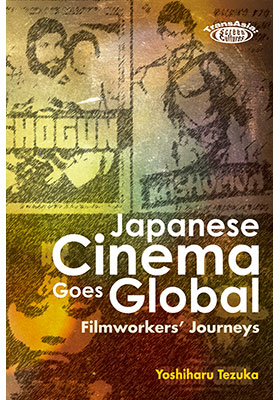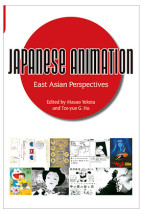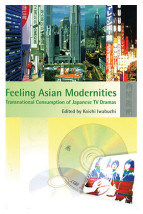Japanese Cinema Goes Global
Filmworkers’ Journeys
(走向世界的日本電影:電影製作人之旅)
ISBN : 978-988-8083-32-9
January 2012
216 pages, 6″ x 9″
Ebooks
Also Available on
Japan’s film industry has gone through dramatic changes in recent decades, as international consumer forces and transnational talent have brought unprecedented engagement with global trends. With careful research and also unique first-person observations drawn from years of working within the international industry of Japanese film, the author aims to examine how different generations of Japanese filmmakers engaged and interacted with the structural opportunities and limitations posed by external forces, and how their subjectivity has been shaped by their transnational experiences and has changed as a result. Having been through the globalization of the last part of the twentieth century, are Japanese themselves and overseas consumers of Japanese culture really becoming more cosmopolitan? If so, what does it mean for Japan’s national culture and the traditional sense of national belonging among Japanese people?
“Yoshiharu Tezuka’s Japanese Cinema Goes Global traces the history of Japanese cinema in the world and vice versa, looking particularly at international coproduction’s and collaborations since the end of World War II. He brings a unique background as a filmmaker, scholar, and Japanese professional trained abroad. The book combines industrial history, surveys of scholarship on Japanese film history, theoretical interventions, and extensive personal interviews with key figures involved in the films he discusses. The result is a rich tapestry of information about and insight into the ways in which Japanese cinema went from a national industry to a global one after 1945. Through the prism of Japanese cinema, Tezuka opens up a broader understanding of the political, economic, social, and cultural dynamic at work in Japan during this time; its relations with the US, European film cultures, and eventually its changing relations during the postwar decades to the Asian film industries.” —Akira Mizuta Lippit, Professor of Cinematic Arts, Comparative Literature, and East Asian Languages and Cultures, University of Southern California
“This book represents a significant contribution to our understanding of both the development of the Japanese film industry and the impact of globalization on working lives. It looks at the internationalization of the Japanese film industry through the lens of work and workers’ subjectivity, demonstrating how Japanese filmmakers and in particular producers have responded to the engagement with the wider world in different periods. Using key case studies from the post-war period, the 1980s, and the more recent era of globalization, the text brings the abstract to life through the analysis of vivid individual stories and experiences.” —Chris Berry, Professor of Film and Television Studies at Goldsmiths, University of London








